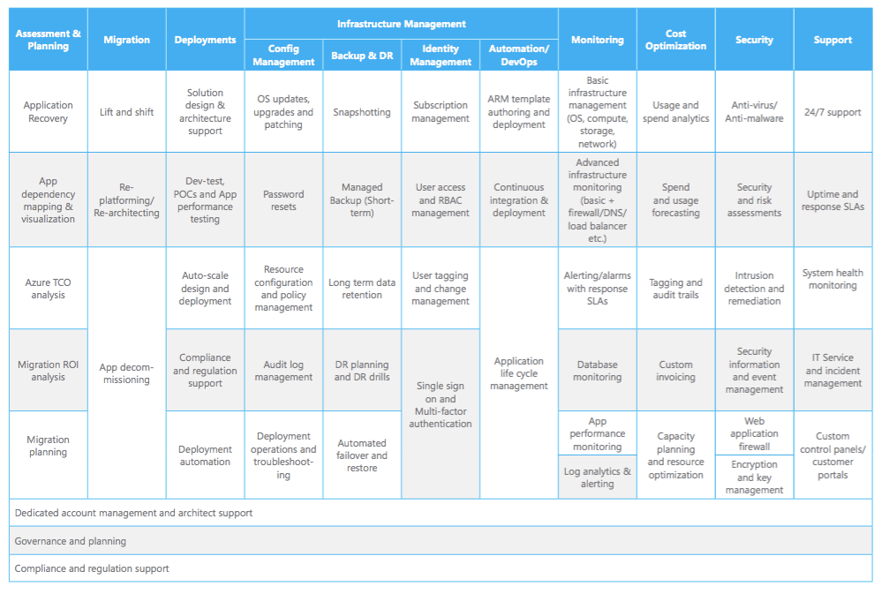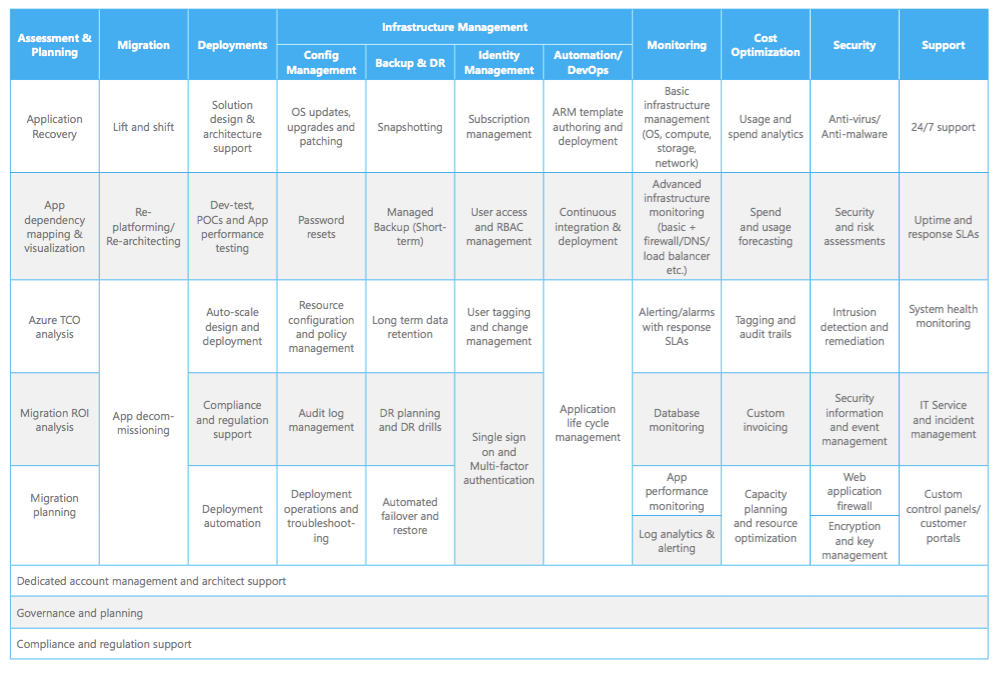You understand the cost and performance benefits of the public cloud and are ready to embrace it. Your next question is how to get your MSP business up to speed with the best cloud offerings. Should you only rely on big cloud vendors such as Microsoft Azure or AWS, or should you reach out to other vendors to resell their services?
With so many options, this can be quite confusing. Here are seven questions to help you assess potential cloud vendors.
1. Which cloud services will you provide?
Knowing what cloud services you provide will dictate how you look for cloud vendors. For most MSPs, this is simply migrating their legacy services to the cloud. For example, instead of hosting email and data on-premises, you can find software-based cloud offerings for email hosting, online document, photo, and video storage.
You can also think beyond your current offerings to expand your portfolio in the cloud. The workloads you haven’t done in the past because of limited resources and technology, such as desktop and application hosting, now become viable and will be a good complement to your current services.

Spectrum of services can be offered by MSPs in a cloud practice
You must also make sure to understand your own end customers, particularly the size and industries in which they operate. Each industry can be unique and will require different services or go-to-market strategies. For example, compliance concerns are different in the financial, legal, and healthcare industries. Same with size, the differences require different strategies to execute effectively.
So rule #1 – identify the cloud services that you will provide tailored to the typical customers you service.
2. Where is the data center?
Cloud is only a fancy word for a bunch of data centers.
Even though many cloud vendors have a large network of data centers around the globe, it’s still important to make sure their data centers are close to where your users are. What’s the point of having a global data center network if you only provide services in Dallas?
Vice versa, if you plan to expand regionally or even globally, ensure that your cloud vendors have the capacity and compute power to scale with you without sacrificing the end-user experience.
If you go for smaller cloud vendors, don’t forget to ask them how they protect their data centers from natural disasters, such as fires, flood, earthquakes, and storms – and whether they have network redundancy and a disaster recovery plan in place.
3. How can you ensure security and compliances?
Security and compliance regulations can vary drastically from industry to industry and from country to country. When assessing cloud vendors, you must see how they handle their security practices. Set it right from the beginning, and you will meet the full security and compliance requirements for your future services:
- Security policies: There should be policies and procedures for controlling access to the platform and your customer systems.
- Identity management: Changes to any application service or hardware component should be authorized on a personal or group role basis.
- Data backup and retention: Policies and procedures to ensure the integrity of customer data should be in place and operational.
- Industry compliance: Vendors must show compliance with government legislation specific to your industry.
4. How much technical knowledge do you require?
This boils down to how much you want to control the underlying infrastructure. If you have an expert team on cloud computing, you might want to look for cloud vendors with strong compute capabilities and customization so that you can build your applications in the cloud.
If you don’t have much cloud expertise, you must make sure the vendors make it easy for you to deploy, manage, and upgrade your software and applications.
No matter what type of vendor you partner with, they should have documentation and formal processes of data transform so you can usually build connections in the future.
5. Do you provide administrative support?
Reselling cloud services means your success is tied to your vendors. Therefore, it is key to be transparent and set clear rules, for example, on administrative support.
The vendors should provide a level of service that you are comfortable with and give you performance reports on a regular basis. You should be able to track and monitor services provided to your customers through the vendors and any changes made to their systems.
You’ll also need to ensure their billing policy is aligned with your current practice. It’s common to expect monthly, pay-as-you-go pricing in the cloud, so be weary of any large upfront costs.
6. How can I access customer support?
While cloud vendors give you the power to accelerate time-to-market, service disruptions may happen. So assessing their technical capabilities is not enough, you must ensure they provide dedicated customer support to you and your end customers.
Without exception, technical support should be available to you online or by phone 24/7. There should also be a detailed knowledge base so you can troubleshoot the issues and learn about the solution in depth.
7. How will I get set up?
In most cases, you’ll have to help customers migrate from their on-premises servers to the cloud – which is hard and can be expensive.
Cloud migration requires considerable planning and coordination through integration, supporting elements, APIs, and connectors. A good cloud vendor can assist you with the migration process, or better than that, already have an automatic migration plan to help you save time and minimize risks when moving resources to the cloud.
Let’s face it: choosing a cloud vendor is not easy, but it is still faster than learning new cloud technology or hiring new staff. We hope that with the seven questions above, you can successfully select vendor partners to expedite your cloud business.


